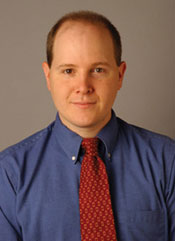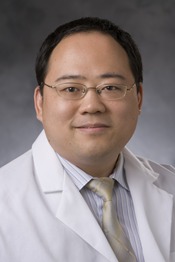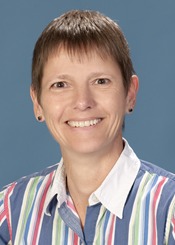SIIM-AAPM Joint Symposium: Machine Intelligence in Medical Imaging
P Nagy1*, S Armato2*, L Ren3*, E Krupinski4*, (1) JHU, Baltimore, MD, (2) The University of Chicago, Chicago, IL, (3) University of Maryland, Baltimore, MD, (4) Emory University, Atlanta, GA
Presentations
WE-DE-201-0 (Wednesday, 7/13/2022) 10:15 AM - 12:15 PM [Eastern Time (GMT-4)]
Room 201
This symposium features 4 invited presentations on tools, infrastructure, development, and clinical application of machine learning / deep learning / AI approaches in medical imaging, including expert perspectives from the Society for Imaging Informatics in Medicine (SIIM) and the AAPM.
(1) Dr. Nagy will discuss practical solutions for, “Building an Imaging Deep Learning Research System with Open Source and Open Standards.” The presentation describes methods and tools to assist in setting up software, storage, and computing environments to conduct deep learning research. Cloud services and DICOM standards are discussed among the important components needed to conduct imaging research – from accessibility to clinical workflow and cohort discovery.
(2) Dr. Armato will review advances in the application of “AI for Computer-Aided Diagnosis in Diagnostic Medical Imaging.” CAD has been transformed by advances in AI in medical imaging, and while very promising, a number of fundamental challenges commonly emerge in training, validation, and testing that must be understood and addressed. These concerns are especially relevant for the translation of AI research to the clinical setting. Taking lung nodule evaluation in radiography and CT as an important clinical use case, key considerations of training, bias, ethics, public databases, and pitfalls in AI research are discussed in relation to the development and clinical translation of AI for CAD.
(3) Dr. Ren will continue the discussion of key clinical applications in terms of “Advances of AI in Image-Guided Radiation Therapy (IGRT).” Imaging has become essential throughout the entire workflow of radiation therapy – from patient simulation to treatment planning and delivery. IGRT uses various imaging techniques to guide radiation delivery and improve treatment precision and outcome, and recent advances in AI have demonstrated the potential to revolutionize the efficiency and accuracy of technologies in IGRT. Dr. Ren will review advances in harnessing the power of AI for various applications in IGRT, including onboard image reconstruction, enhancement, registration, motion monitoring, and tracking, as well as major challenges, opportunities, and future outlook.
(4) Dr. Krupinski concludes the symposium by asking, “Your AI Scheme Has a Great AUC, But Will it Ever be Used Clinically?” Creating an AI scheme that can achieve levels of performance equivalent to or even better than its intended users is only half the challenge. The ultimate goal is to translate it into clinical use so it can aid clinical decision making, improve efficiency, and impact patient care. This requires a very different approach and set of skills. Implementation sciences, human factors, and an understanding of the perceptual and cognitive processes involved in clinical decision making are key to helping ensure the successful translation of AI into clinical use.
The four talks are followed by open panel discussion with the audience. The joint SIIM-AAPM symposium is reciprocated with invited lectures at the annual Conference on Machine Intelligence in Medical Imaging (CMIMI), October 2-3, 2022 (Baltimore, MD).
Learning Objectives:
1. Gain an understanding of architecture and systems requirements needed to conduct reproducible research in medical imaging.
2. Understand the research advances and limitations of AI for diagnostic imaging applications.
3. Understand the advances, applications, and clinical impact of AI in IGRT.
4. Gain an understanding of implementation sciences and other techniques as they apply to translation of AI schemes into clinical use.
Handouts
- 175-63059-16291659-186617-410618342.pdf (Elizabeth Anne Krupinski)
Keywords
Not Applicable / None Entered.
Taxonomy
Not Applicable / None Entered.
Contact Email











